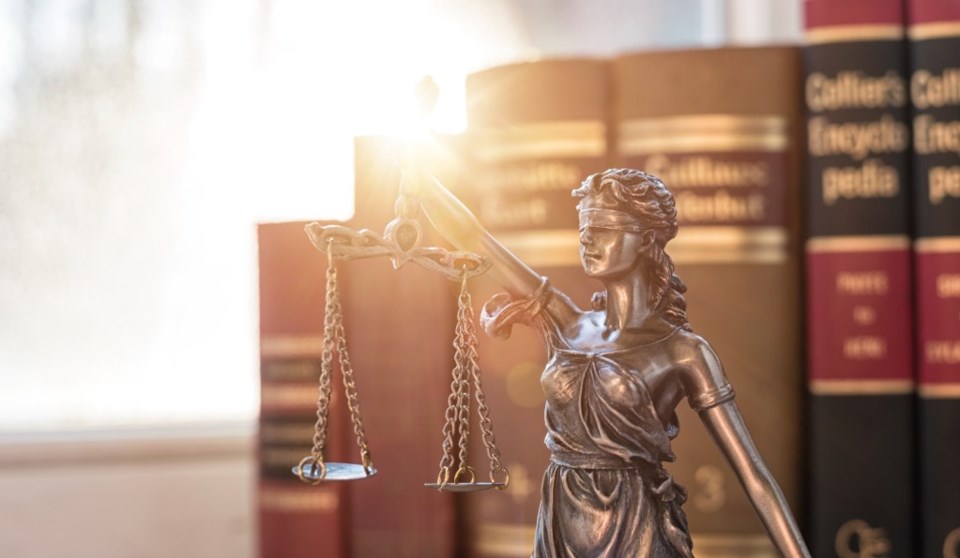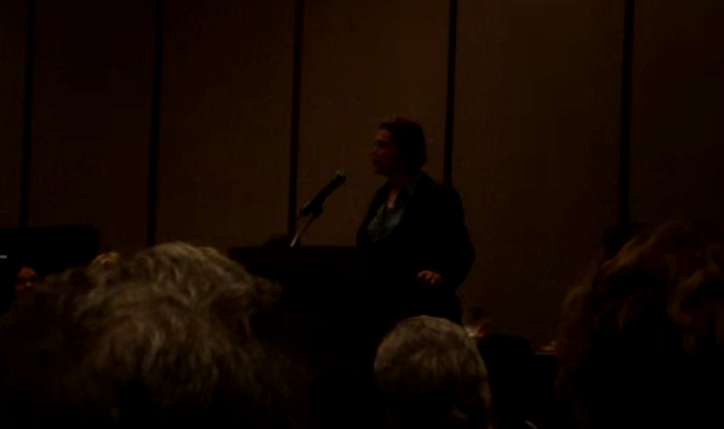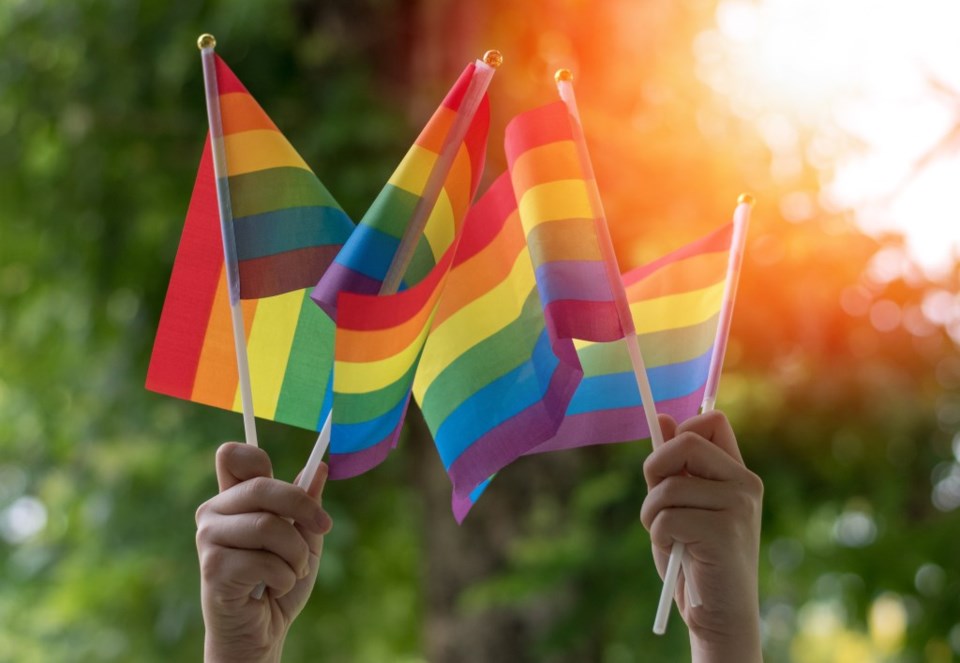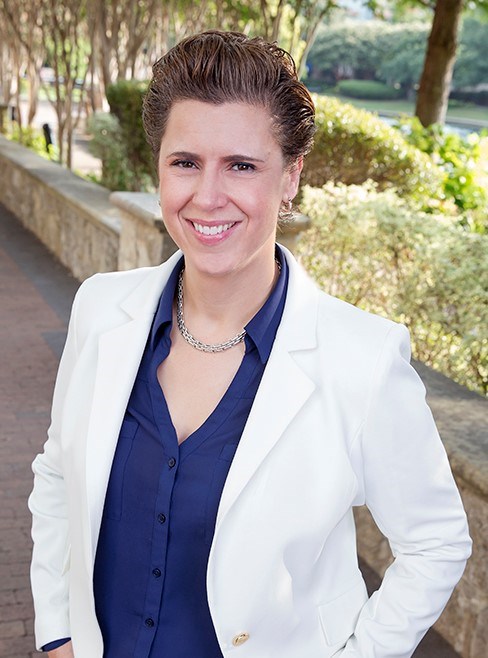Lorie Burch had two identities — “Lorie the lawyer” and “Lorie the gay lawyer.” Each fit into two separate worlds. “Lorie the lawyer” went to events and meetings for the Plano Chamber of Commerce and the American Business Women’s Association. But “Lorie the gay lawyer” went to events and meetings for the North Texas GLBT Chamber of Commerce, the DFW Human Rights Campaign and Lambda Legal.
Like so many members of the LGBTQ+ community, Burch was afraid her sexual orientation would act as a roadblock to her success, especially in Texas where conservative politicians aren’t known for their acceptance of the LGBTQ+ community. And she managed to keep her worlds separated for a while until 2009, when she was nominated for one of the top 10 business women in the country by the ABWA. The application consisted of questions that probed deep into Burch’s life, making it impossible for her not to reveal that she is a lesbian and the work she does for the LGBTQ+ community.
“I had this moment sitting on my couch, like, ‘What do I do?’” Burch says. “Because to me, it was such a big leap in a non-LGBT arena to say, ‘This is who I am. This is the work that I do. This is what I envisioned for my life.’ And I just did it.”
After she nervously submitted her application, Burch was hoping for the best but expecting the worst. That was until Burch got a phone call.
“I get the call that I was selected, [and] I'm like, ‘Oh my gosh,’” she says. “But then very quickly, the reality sunk in that I was going to have to go to the ABWA national conference and give a speech in front of [about] 600 women. And I don't really know what they think of me or people like me. But I did it. I just took a deep breath, and I got up, and I gave my three minutes.”

Lorie the lawyer
Before she was “Lorie the lawyer” or “Lorie the gay lawyer,” Burch was just a kid with a dream “to make the world a better place.” And that dream meant she always knew she wanted to be an attorney. Her goal was further reinforced when she and her family were transferred to Indonesia, where she attended an international school for her eighth and ninth-grade years. While there, she met people from all walks of life.
“When I moved back to the states, [that experience] just instilled it in me,” Burch said. “I already knew that I liked the legal field, but [seeing] other people who live different ways, think different ways, from all walks of life — they all deserve to be represented and treated with equal dignity under the law. And while the United States isn't perfect, we have a legal system that does provide the ability to make great strides when it comes to civil rights and liberties.”
After graduating from Plano Senior High, Burch went to Trinity University in San Antonio to get her undergraduate degree before going to law school. However, she ended up doing a justice internship at American University in Washington D.C. her junior year, which inspired her decision to attend law school at The George Washington University Law School. Burch passed the Bar Exam after law school and was officially licensed in Maryland.
But in a post-9/11 world, Burch found it hard to find public interest and civil rights jobs in D.C. She had fleeting thoughts about opening up her own practice and coming home, but it didn’t happen until the soul-crushing death of her step-dad that she made her move.
“It was like, ‘Okay, I'm coming home now,’” Burch says. “I mean, I moved back within three weeks. I wasn't licensed here. I was licensed in Maryland. I left a difficult relationship. I was starting my own practice — all of this stuff in the wake of my dad passing away.”
Fast forward to 2005, and despite so much hardship, Burch studied intensely to pass the Texas Bar Exam. And once she did, she opened up her own practice — Burch Law — doing wills, trusts, powers of attorney and probate in Dallas.
“The thought behind doing that was for a specific emphasis for the LGBTQ community to ensure that couples and families had rights that the law didn't currently provide,” she says. “And I found that the practice really took off. I love being a business owner.”

Burch’s epiphany
Burch doesn’t really have a coming-out story — it was more of an epiphany. She didn’t come out to herself until she was in law school when she suddenly came to the realization. Luckily, her family and Baptist church community were very accepting, understanding and kind.
But when Burch walked up to the lectern at the ABWA national conference to give her speech in 2009, she had fear in her heart — fear that the women who had just chosen her as one of the top 10 business women would judge her for being who she is. But what was also in her heart was her story.
“I know I must be strong because not everyone will understand or agree with me or the people that I represent,” Burch said during her speech in 2009. “But what has changed most is that I've learned to be happy in this moment just as it is and let a higher power reveal the future in its own time. Success truly is a journey, not a destination.”
Her words caused the ABWA crowd of women to rise to their feet and give Burch a standing ovation. At the banquet afterward, a woman approached Burch and grabbed her shoulders. While Burch feared the worst at first, what the woman said to her still brings tears to her eyes all these years later.
“She said, ‘Thank you for what you do and what you do for my daughter,’” Burch recalls through tears. “And in that moment, suddenly I realized that, ‘Okay, I've gone through this journey. This is now the role I can play — is that it doesn't matter if there are people out there that want to judge you or hate you. They're going to do that about anything, but there are people that need to see other people like you that are like you or love people like you, or maybe even have an open heart to change.’”
That single moment in time and that one speech changed her outlook on life forever. Burch says she became much more authentic, vulnerable and honest with others. She didn’t feel the need to hide who she was any more or live a double life. She was just her.
She ran for and held multiple other leadership roles within the ABWA before being asked by fellow ABWA members to run for the organization’s national board of directors. Like everything else, she did it and served as the national president from 2013-2014. While president, she introduced the ABWA’s first fully inclusive non-discrimination policy, which passed unanimously.
“Even though I've been in a lot of LGBTQ organizations, [and] I've led a lot of them, being able to be an open LGBTQ person leading a national, non-LGBTQ organization is just what my path was meant to be,” Burch said. “It was just meant to be trying to break down these barriers.”
And while the fight for LGBTQ+ rights is far from over, Burch’s “coming out” story in the non-LGBTQ+ business world marks an example of why Pride Month is a time to celebrate.
“The story I just told you — someone 20 years ago couldn't have had that story,” Burch said of her ABWA story. “Somebody 40 years ago won't have that story. And maybe on some small scale because of what I've done, maybe 20 years from now, nobody will have to go through what I just explained.”

Pride Month
Eventually, Burch found love. She and her wife Kimberly have three daughters — two from her wife’s previous marriage and one they have together through reciprocal IVF. Because of that, Burch said her coming out story is continual.
“Anybody you talk to, they're like, ‘Oh, what does your husband do for a living?’” Burch said. “So it actually never stops. You edit your speech a lot, which is unfortunate, but you just never know.”
At the same time, Burch said she’s realized that she can’t “write anybody off.” She’s been in situations where she’s talking to a stereotypical older, white and Christian couple who start talking about their son and his husband.
And she ran into something similar in 2018 when she was the democratic nominee for the U.S. Congress in Texas’ Third Congressional District. Even though she didn’t win, she managed to win a four-way race in the 2018 Democratic Primary, with 44% of the vote. It was the closest Congressional race that TX-3 has seen in decades. “I ran as a Democrat, and, of course, I'm openly gay,” she says. “And even up here in Collin County, I never really got any flack for being gay. It was just [for] being a Democrat.”
While the American public has become, in general, more accepting of LGBTQ+ community members, the fight is nowhere close to being over. Burch said it’s important for people to know that Pride started as a protest of civil disobedience. And now is not the time to start getting complacent, especially when it comes to the transgender community.
Because of the work Burch does, she’s helped many clients complete gender change orders and watched firsthand how it changed their lives.
“[I’ve] seen how somebody, in the matter of a five-minute hearing with a judge, can suddenly feel like they finally get to live a life they were meant to live,” she says. “And why would we ever want to deny anybody that? I just can't even wrap my head around it.”
Multiple LGBTQ+ advocacy groups have called 2021 a record-breaking year for anti-transgender legislation, CNN reported. Thirty-three states, including Texas, have introduced over 100 bills this year to limit transgender rights. Texas was one of 31 states to introduce a bill this session that bans transgender athletes from participating in sports that match their gender identities.
“So I'd like to think of pride as a time to reflect, a time to remember our origins, a time to celebrate how far we've come, but also to reignite that fire to make sure we keep our foot on the pedal,” Burch says. “And we're not done until we reach the promised land.”




